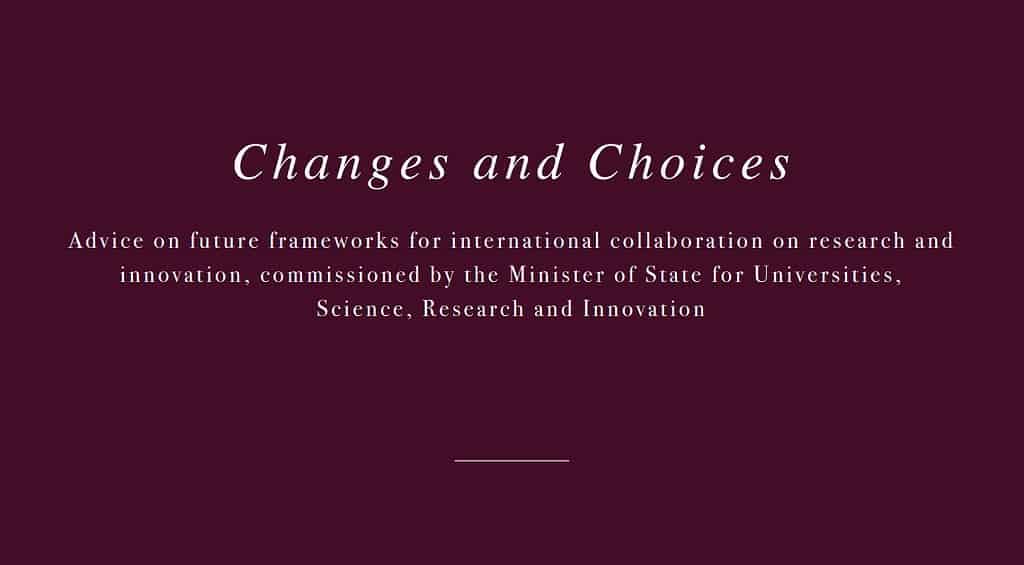Thomas Goldsmith, Policy Adviser at the Royal Society, sets out details of the new Research and Innovation Talent Visa, for international scientists working in the UK.
Academies launch new visa route to boost international mobility
17 Jan 2018
On 11 January 2018, the Royal Society, the British Academy and the Royal Academy of Engineering launched the Research and Innovation Talent (RIT) Visa. Over the past 18 months, the three academies have been working together and with the Government to make improvements to the Tier 1 (Exceptional Talent) visa route. The academies have acted as a Designated Competent Bodies (DCBs) for Tier 1 (Exceptional Talent) since 2011 and the new RIT Visa operates through this route. The RIT Visa enables top researchers from outside the European Economic Area (EEA) to come to the UK and the Society reviews applications from scientists and endorses them to the Home Office.
International mobility
As the Society has previously found in our research, international mobility is a key part of research careers and the practice of excellent science. We’re delighted to launch the RIT Visa to help facilitate that mobility and enable scientists to come to the UK. It is open to both early career researchers who demonstrate the potential to be future leaders in their field (the Exceptional Promise route), as well as established researchers already playing that leadership role (the Exceptional Talent route).
Benefits of the Research and Innovation Talent Visa
The RIT Visa has a number of benefits for researchers holding it compared to other visas that they might be eligible for. On a RIT Visa, it could be easier for them to:
- Change roles within their organisation;
- Be employed by more than one employer;
- Be self-employed or earn additional income from other sources, for example by undertaking consultancy work;
- Take career breaks, academic leave and more than four weeks of unpaid leave each year;
- Create or move to a spin-out company;
- Take any job relevant to their skills, not only those for which an EU citizen could not be found;
- Enter the UK prior to receiving an offer of employment.
Accelerated routes
The RIT Visa has two accelerated routes for researchers who have either: (1) a specified peer-reviewed fellowship or (2) the offer of a senior academic or research position at a UK Higher Education Institution or an eligible research institute. Eligible researchers for these accelerated processes apply through a new simpler application process that reduces the duplication of paperwork, receive a quicker response to their application and have greater certainty that their application will be endorsed.
New guidance
The process of applying for a visa can be quite a daunting and confusing one. To try and help potential researchers overcome that, we’ve worked with the other academies to produce new guidance for the RIT Visa, a selection of FAQs and an overview to simply explain the application process.
Other immigration changes
Alongside the launch of the Research and Innovation Talent Visa the government has made further improvements to the Tier 1 (Exceptional Talent) route in the Immigration Rules. The time that Exceptional Talent RIT visa holders must be in the UK before they are eligible for Indefinite Leave to Remain has been reduced from five to three years and the number of visas available through the route annually has been doubled, from 1,000 to 2,000.
We’re looking forward to welcoming top scientists to the UK who have come through the RIT Visa.
This article was originally posted on The Royal Society website.
Related articles

The Physiological Society’s policy team on the health challenges facing older workers and the urgent need to develop a strategy to ensure older people are happy and healthy at work.

Jo Reynolds, Director of Science and Communities at the Royal Society of Chemistry, on the RSC’s new summary report looking to unlock the potential of deep tech SMEs.

Lisa Morrison Coulthard, Research Director at the National Foundation for Education Research, on the Nuffield Foundation funded five year research programme providing insights into the essential employment skills needed for the future workforce

Sir Adrian Smith, Institute Director and Chief Executive of The Alan Turing Institute, and Graeme Reid, Professor of Science and Research Policy at UCL, set out the findings from their new independent report on international partnership opportunities for UK research and innovation